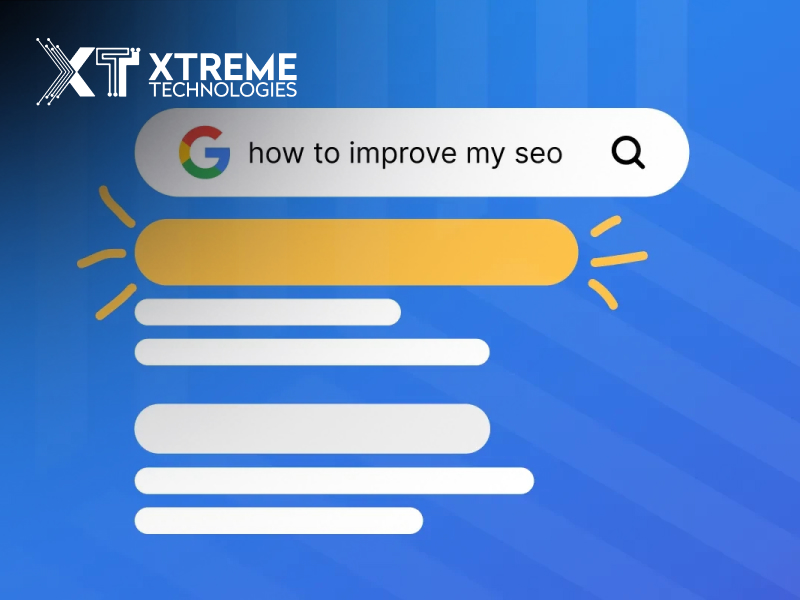
What should be the first step of a structured SEO plan?
All, Digital Marketing, SEO,
Published on: July 12, 2023
When it comes to implementing a structured SEO Plan (Search Engine Optimization), the first step typically involves conducting thorough keyword research. Keyword research is the process of identifying the search terms and phrases that your target audience is using to find information, products, or services relevant to your website or blog. By understanding the keywords people are searching for, you can optimize your content to align with their needs and increase your chances of ranking. Here's a breakdown of the steps involved in conducting keyword research:
Define your goals and target audience:
Understand the purpose of your website or blog and identify your target audience. Determine what you want to achieve through SEO, such as increasing organic traffic, improving conversions, or expanding brand awareness.
Brainstorm initial keywords:
Start by brainstorming a list of relevant keywords and phrases related to your website's topic. Consider using general terms as well as more specific long-tail keywords, which are longer and more specific phrases that tend to have lower competition.Use keyword research tools:
Leverage the capabilities of keyword research tools to enhance your initial list and collect valuable information. Well-known tools such as Google Keyword Planner, Moz Keyword Explorer, and SEMrush, can offer valuable insights into search volume, competition levels, and relevant keyword recommendations.
Analyze search intent:
Evaluate the intent behind each keyword. Determine whether users are seeking informational, navigational, commercial, or transactional content. This will help you align your content with the specific needs and expectations of searchers.
Assess keyword metrics:
Analyze the metrics provided by the keyword research tools. Try to search and incorporate the keywords that have a low competition. Balance this with relevance to your content and your website's authority. Targeting highly competitive keywords may be challenging for a new or low-authority website.Consider long-tail keywords:
Long-tail keywords are more specific and typically have less competition. They often reflect users with a higher intent to convert. Including long-tail keywords in your content can help you attract targeted traffic and improve your chances of ranking higher for those specific queries.Prioritize keywords:
Prioritize your list of keywords based on relevance, search volume, and competition. Focus on keywords that align with your content strategy and offer a good balance between search volume and competition.Content planning:
Once you have identified your target keywords, create a content plan that outlines how you will incorporate these keywords into your website or blog. Consider creating high-quality, informative, and engaging content that addresses the search intent behind the keywords.Importance of a Structured SEO Plan
A structured SEO plan provides a systematic approach to optimize your website's visibility in search engine results. By following a well-defined strategy, you can improve your organic traffic, enhance user experience, and increase your chances of ranking higher on SERPs. A structured SEO plan ensures that you address critical aspects of optimization, such as keyword targeting, on-page optimization, technical SEO, link building, and analytics. It allows you to track your progress, make data-driven decisions, and continuously refine your SEO efforts for long-term success.On-Page Optimization Techniques
The visibility of your website is enhanced due to On-Page SEO optimization techniques. It involves optimizing individual web pages by incorporating target keywords strategically. To optimize your content effectively, ensure that your target keyword appears in the page title, meta description, headings (H1, H2, etc.), and within the body text. Use variations of your keyword naturally throughout the content to avoid keyword stuffing. Additionally, optimize images with descriptive alt tags and compress them for faster loading times. Implementing on-page SEO techniques as part of your structured SEO plan can significantly impact your website's ranking potential.Technical SEO Best Practices
Technical SEO focuses on optimizing the technical aspects of your website to improve its crawl ability, indexability, and overall performance. As part of your structured SEO plan, conduct an audit to identify and fix any technical issues that may hinder search engine bots from effectively crawling and understanding your website. This includes optimizing your website's loading speed, ensuring mobile responsiveness, optimizing URL structures, implementing proper canonicalization, creating XML sitemaps, and optimizing robots.txt files. By addressing technical SEO aspects, you can enhance your website's visibility and user experience.Building High-Quality Backlinks
Backlinks are an essential factor in search engine ranking algorithms. As part of a structured SEO plan, focus on building high-quality backlinks from reputable websites in your industry. Reach out to relevant blogs, influencers, and websites for guest posting opportunities or collaborations. Create valuable content that naturally attracts backlinks. Additionally, leverage social media platforms and online communities to share and promote your content, increasing its chances of being linked to by others.Ongoing Monitoring and Optimization
A structured SEO plan should include regular monitoring and optimization of your website's performance. Continuously track key SEO metrics, such as organic traffic, keyword rankings, bounce rates, and conversions. Analyze the data to identify areas that need improvement and refine your SEO strategy accordingly.Regularly update your content with fresh information, optimize underperforming pages, and adapt your keyword targeting based on evolving trends and user behavior. By staying proactive and making data-driven optimizations, you can ensure the long-term success of your structured SEO plan.
Read Also: Automotive SEO to Increase Online Visibility – 2023 Trends
Remember that SEO is a dynamic field, and search engine algorithms frequently evolve. Therefore, staying up to date with industry trends, algorithm changes, and emerging optimization techniques is crucial for the success of your structured SEO plan.
SEO is an ongoing process, and your keyword research should evolve over time. Regularly monitor your website's performance, track keyword rankings, and adjust your strategy as needed to improve your SEO efforts.





Recent Comments